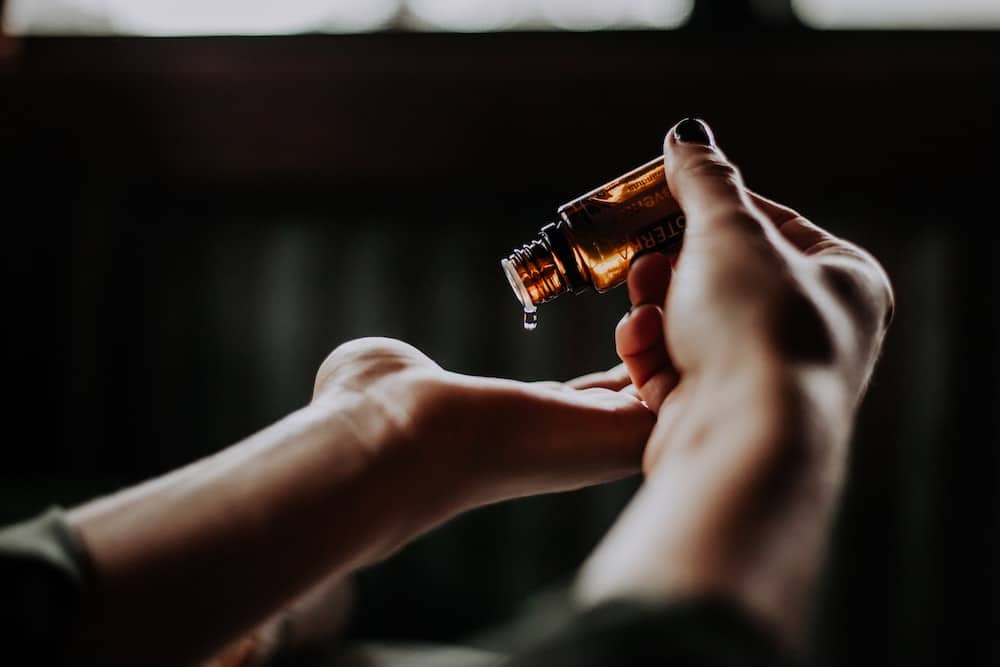What is Phenibut?
Phenibut has an exceptionally active pharmacological profile.
Phenibut is mainly used as a stress reliever, mood enhancer, sleeping pill and even as a cognitive enhancer.
Multiple studies showed that it has a significant positive effect on memory and anxiety.
This leads us to the question if Phenibut is safe or should it be avoided in favor of other nootropics that may be slightly weaker?
There are few side effects of Phenibut that are documented in the research on this supplement.
However, some online published user reports suggest that some people had mild side effects.
Mode of Operation
Phenibut is an inhibitory brain chemical that is released when neurons shoot too fast.
It essentially rebalances your neurons so they can respond more adequately to external stimuli.
Users of Phenibut XT self-report that they feel calmer and not easily overwhelmed or stressed.
The construction of tolerance to Phenibut or one of its many effects is quite common, but this design does not correlate with increases or decreases in the nootropic effects of Phenibut.
In other words, more is not necessarily better.
Re-dosing will only aggravate the hangover and bring little to no cognitive benefit.
The first signs of tolerance can be seen within just five days.
For this reason, it is usually used for one to two weeks, or the dose may be increased by 25-30% after two weeks.
This makes Phenibut ideal for short periods of stress or anxiety, but not ideal for chronic use.
It is possible that taking only one dose a day partially reduces the development of tolerance.
Consider this case – a person taking Phenibut to get rid of insomnia could see momentary relief of surface-layer symptoms, then after a week of using the product, the same problem would recur.
An ideal time course for Phenibut should not be more than a few months.
In fact, Phenibut is not meant to help you in the long run.
Therefore it can not replace the necessary lifestyle changes that would alleviate social anxiety.
The following herbs are recommended instead:
- L-theanine (which is present in most green teas)
- Ashwagandha
- Kava Kava
- Lemon balm
- Valerian root
Of these five, Theanin and Ashwagandha seem to work best.

Safety / side effects
Incorrect use (e.g., overdose) of Phenibut causes side effects such as nausea, diarrhea, fatigue, memory disorders, and balance disorders.
Phenibut can trigger dependency disorder and withdrawal symptoms after a short time.
In higher doses, it can damage the liver.
If you take too much Phenibut at once, it can also lead to severe overdose symptoms, similar to drinking alcohol in excess.
This is due to the fact that alcohol and Phenibut activate similar GABA receptors in the brain.
It is suggested that the lowest dosage is used to assess tolerance and avoid overstressing.
Another strategy is to take them no longer than one to two weeks to keep tolerance low.
During Phenibut withdrawal, excess glutamate floating around the brain causes people to get really bad anxiety, insomnia, and even depressive symptoms.
The depressive symptoms are also partly due to downregulation of dopamine receptors (remember that Phenibut is a mild stimulant).
These symptoms are not normal.
They usually occur in people who have used Phenibut for prolonged periods in small doses, i.e. consecutive days or sometimes for years.
Most users start with Phenibut at random times.
This sporadic dosing leads to irritability and disturbed sleep due to its steep tolerance ramp and dose-dependent symptom intensity.
One last note – while the Phenbiut withdrawal may be intensive, if the drug is used incorrectly, Phenibut is largely harmless.
It is relatively non-toxic and not carcinogenic.
For most people, the main concern with Phenibut is the withdrawal symptoms and the problems they can cause.
Taking Phenibut at a certain dose has profound effects on the brain to eliminate anxiety, stress and general depression.
All these things are incredibly important and help you achieve a degree of satisfaction from nootropic.
If they are missing, of course, the brain will long for it again.
In the following, let’s take a look at some of the prescribed effects that Phenibut can exert on different domains.
GABA
Gamma-aminobutyric acid is a neurotransmitter (messenger) responsible for the regulation of neuronal excitability in the central nervous system (CNS).
Essentially, it ensures that the brain does not become hyperactive.
GABA naturally occurs in the brain, which is why it normally does not have to cross the blood-brain barrier to making it work.
Phenibut is a modification of GABA, which allows GABA to cross the blood-brain barrier more effectively.
Dopamine
Phenibut increases the concentration of dopamine in the brain.
Dopamine is an important messenger substance, which is also called happiness hormone. It plays a role in motivation and drives to increase.
Therefore, it has anti-depressant properties that reduce irritability and minimize fatigue. Furthermore, it has a positive influence on the mood.
Sports
Phenibut could also be interesting for bodybuilders and strength athletes.
It seems to promote the secretion of growth hormones (after sports activities).
In a study conducted with strength athletes, supplementation with GABA was found to increase growth hormone concentrations during rest periods of 375% and 175% post-exercise.
In addition, the substance baclofen (which has the same mechanism of action as Phenibut) appears to increase growth hormone synthesis.
It is anti-hypoxic.
When a muscle is used for a long time, it gets less oxygen and becomes hypoxic.
This metabolic effect leads to hypertrophy and could lower tolerance to metabolic stress, allowing the user to train harder.
Phenibut is neuroprotective and increases the energy potential of the cells, which could consequently increase exercise capacity.
Phenibut should not be seen as a means to improve performance, because excessive consumption lowers performance.
It is more of a “recovery enhancer” that improves the recovery time between workouts.
Sleep
It inhibits the firing of the neurons in the brain, shortening sleep time, raising sleep quality and promoting deep sleep.
Some users report that they wake up more relaxed and rested after using Phenibut.
Dosage
The main negative side effects of Phenibut are related to the symptoms and problems that occur immediately after stopping the intake.
People who take high doses feel very ill and sometimes endanger their lives by stopping the cold turkey.
The body has a hard time adapting without the drug and that is the source of much pain and distress.
The best way to avoid this is to make sure your dosage is not high and you are able to keep in the range of 250 mg – 500 mg per dose 1 – 3 times a day.
If you stay at the bottom, it will be easier.
Try to slowly get rid of the drug for the best results.
In general, sufferers report that the effects begin about 1 or 2 hours after oral administration, and then the primary effects usually last about 4 or 5 hours, although pleasant persistent effects may continue for another 24 hours.

Benefits
The effects of Phenibut combine mild to moderate sedation with mild to moderate stimulation so that you feel relaxed and mentally focused at the same time.
This increases sociability, reduces stress and levels of inhibition, without compromising judgment.
Phenibut gives some consumers the feeling of mild euphoria, synonymous with a mild “high”.
As such, it can be misused if it is not used correctly.
However, the euphoric Phenibut high is not intense and if you take more, it does not increase the high.
In particular, the positive effects can be named as:
- extreme calmness
- moderate to a drastic reduction of anxiety
- moderate to a dramatic increase in pro-social behavior
- enhanced subjective well-being
- euphoria
- slight to strong alertness
Final Thoughts: Phenibut Benefits and Side Effects
In conclusion, I would hesitate to recommend the usage of Phenibut.
Given a short-time period use, Phenibut might help quite well to master everyday challenges like meeting deadlines or improving attention span.
However, here I would like to emphasize situational use only.
Evidently, frequent use of Phenibut comes with a high risk of dependence.
What are your experiences with regard to nootropics?
Let me know about alternatives to Phenibut and your opinions in the comment or feel free to hit me up personally!
As always, we are also open to any suggestions or remarks on the content of the article.
Thanks for reading this one, folks!
Cheers,
Janik




